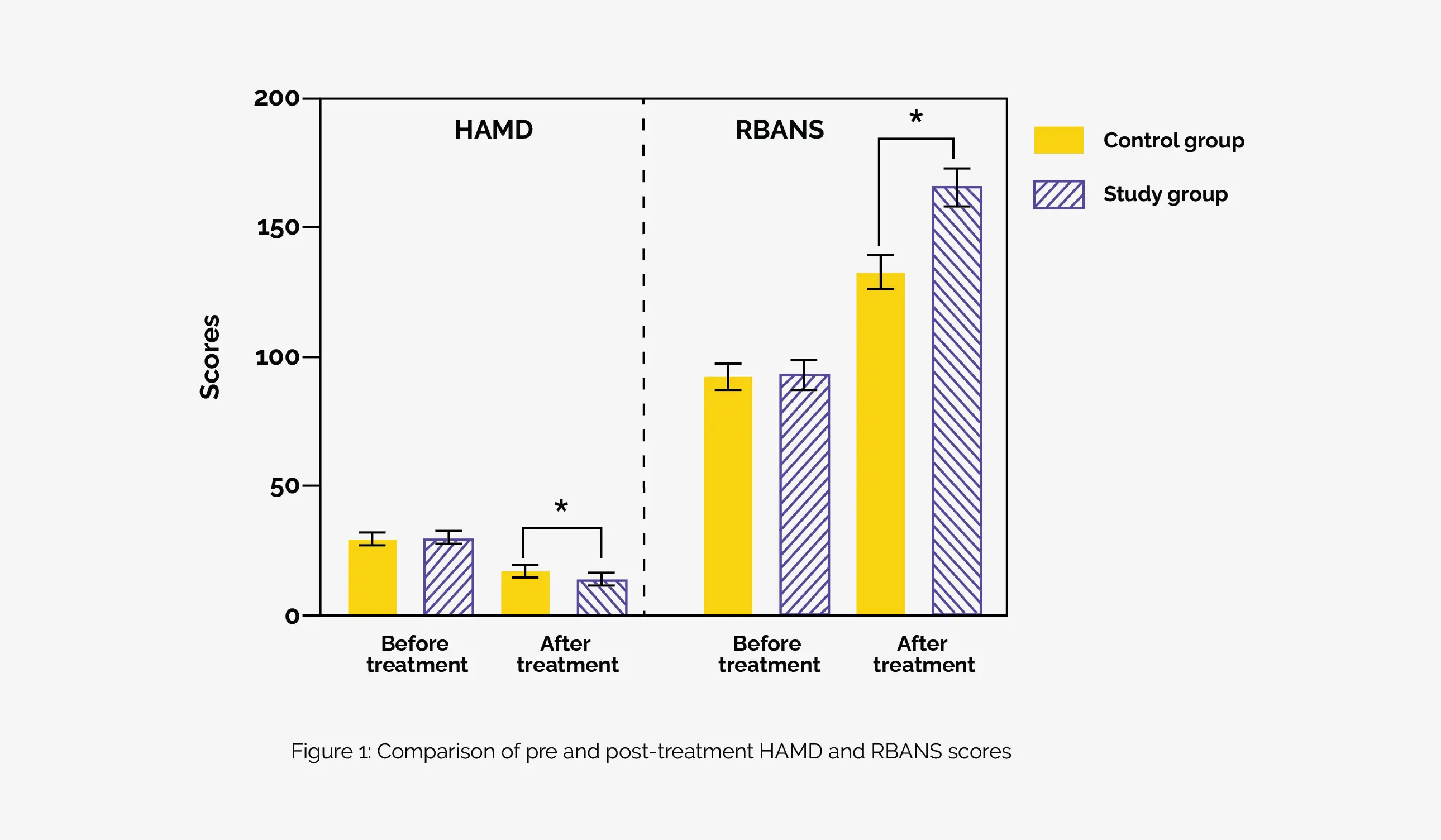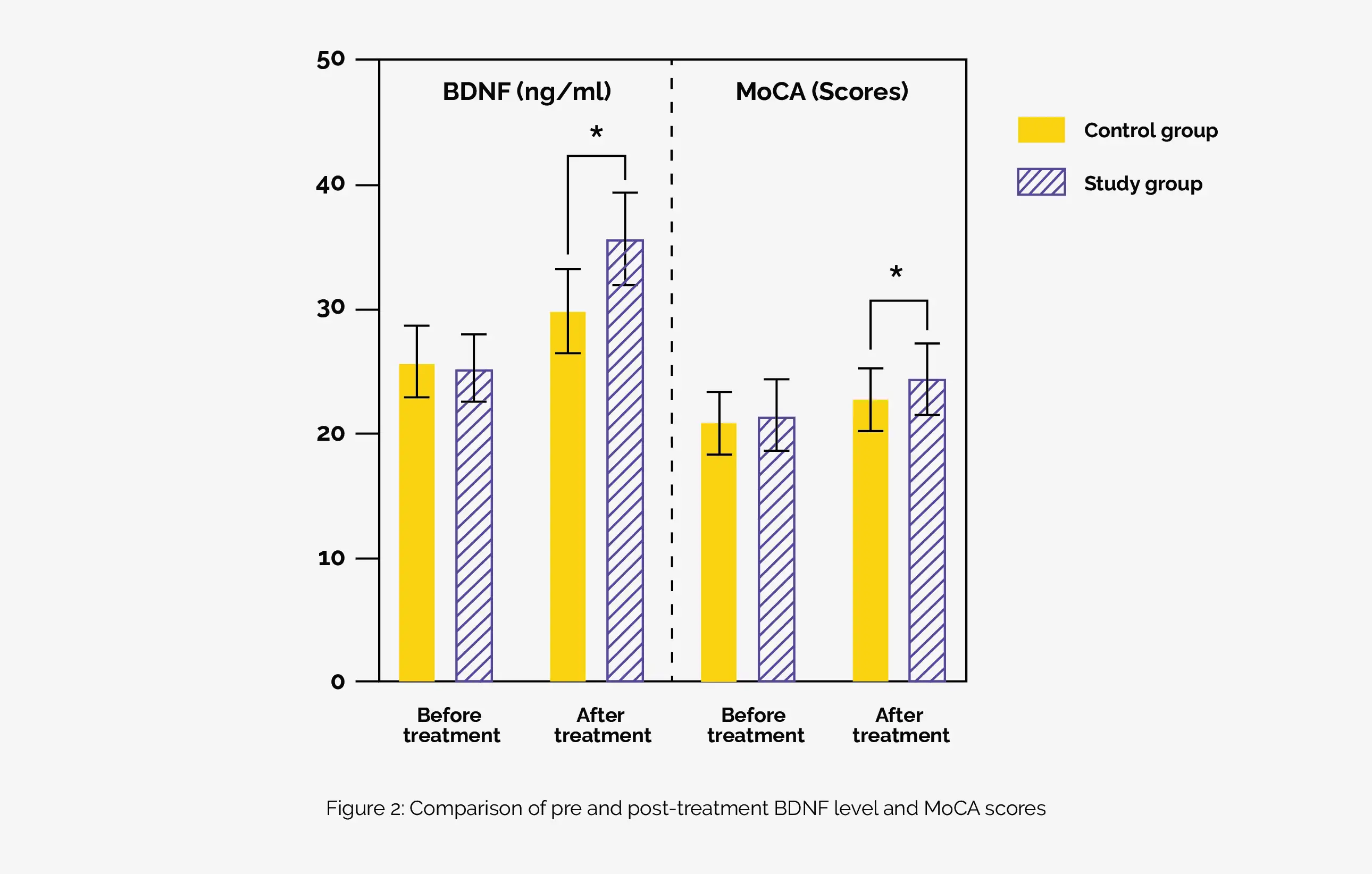Categories
Change Password!
Reset Password!


For relieving major depressive disorder in middle-aged and elderly patients, repeated transcranial magnetic stimulation combined with Escitalopram is more effective than Escitalopram alone.
A study revealed that when repetitive transcranial magnetic stimulation (rTMS) is used in conjunction with oral administration of Escitalopram for mitigating major depressive disorder (MDD), it enhances the effectiveness of the therapy, boosts serum brain-derived neurotrophic factor (BDNF) levels, improves cognitive function in people more effectively, and doesn't result in any vital adverse reactions, as opposed to using Escitalopram alone.
Researchers sought to investigate how rTMS impacts BDNF levels and cognitive function in middle-aged and elderly MDD management. In this randomized controlled trial, 120 volunteers were randomized to two groups using a random number table method: the control group (consisting of 60 subjects who were given oral treatment with Escitalopram and sham rTMS) and the study group (comprising 60 volunteers who were given Escitalopram + rTMS).
The cognitive function, serum BDNF levels, and clinical effectiveness were contrasted between both groups. Following the treatment, the study group exhibited favorable results compared to the control group. Specifically, the Hamilton Depression Rating Scale 17 (HAMD-17) score was lower in the study group (13.00, with a range of 12.00-16.00) compared to the control group (17.00, with a range of 15.00-19.00). Additionally, the Repeatable Battery for the Assessment of Neuropsychological Status (RBANS) score was higher in the study group (166.00, with a range of 161.25-171.75) in contrast to the control group (133.00, with a range of 130.00-136.75) (Figure 1).

The research group also had a higher total effective rate of 95.0%, surpassing the control group's rate of 82.0%. Furthermore, the study group exhibited higher serum BDNF levels (36.00, with a range of 33.00-38.00) compared to the control group (30.00, with a range of 28.00-32.00) and Montreal Cognitive Assessment (MoCA) scores (24.00, with a range of 22.00-26.75) in contrast to the control group (23.00 with a range of 21.00-25.00).

Importantly, there were no significant adverse reactions reported during the treatment in either group. Hence, when contrasted with sole oral Escitalopram treatment, rTMS not only enhances efficacy but also effectively raises BDNF levels and cognitive function in middle-aged and elderly patients with MDD, all while maintaining a high level of safety.
Medicine (Baltimore)
Repetitive transcranial magnetic stimulation in the treatment of middle-aged and elderly major depressive disorder: A randomized controlled trial
Xiaofang Wang et al.
Comments (0)